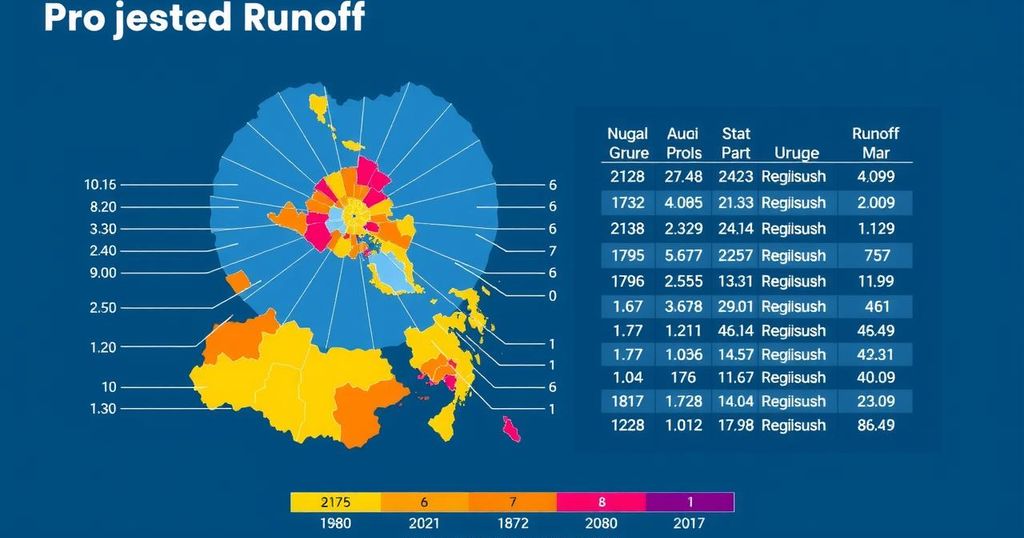Uruguay’s presidential election is proceeding to a runoff on November 24 after Yamandú Orsi, the center-left former mayor, finished ahead but failed to reach the 50 percent threshold for a victory. With 80 percent of votes counted, Orsi holds between 42-44 percent, while Álvaro Delgado from the center-right coalition stands at approximately 27-28 percent. Orsi’s campaign focuses on enhancing social welfare in response to economic issues facing the country.
Uruguay’s presidential election will progress to a runoff scheduled for November 24, following a recent round of voting in which former mayor Yamandú Orsi emerged as the leading candidate but did not secure the necessary 50 percent of votes for an outright victory. As of now, more than 80 percent of the electoral votes have been counted, indicating Mr. Orsi, representing the center-left Broad Front alliance, has garnered between 42 to 44 percent of the votes. His main competitor, Álvaro Delgado of the center-right governing coalition, trails behind with approximately 27 to 28 percent of the total votes. Yamandú Orsi, a two-term mayor and former history teacher, leads his party that previously held the presidency from 2005 until 2019. His campaign reflects the voters’ inclination toward enhancing the social safety net in one of the most economically stringent countries in Latin America. Following the preliminary results, Mr. Orsi confidently addressed his supporters in Montevideo, emphasizing the importance of the remaining campaign period, stating, “We are going in for these 27 days,” as he prepares for the upcoming runoff.
The context surrounding Uruguay’s presidential election illustrates a competitive political landscape marked by the citizens’ shift in priorities. The nation’s electorate seems to be leaning toward candidates who advocate for more robust social welfare measures amid economic challenges. The Broad Front, which lost power in 2019, aims to reclaim influence by resonating with voters worried about economic security and social programs. This election cycle marks a significant moment as it not only represents the continuing struggle between the left and right political factions in Uruguay but also poses questions about the direction in which the country wishes to navigate its future, especially after a phase of leadership from the governing center-right coalition.
In conclusion, the first round of Uruguay’s presidential election has set the stage for a critical runoff between Yamandú Orsi and Álvaro Delgado. Orsi’s current standing as the front-runner reflects the electorate’s desire for increased support systems, while Delgado’s position highlights the ongoing competition between center-left and center-right ideologies. The upcoming weeks will be pivotal as both candidates prepare for an intense campaign period leading up to the runoff on November 24, 2023.
Original Source: www.nytimes.com






